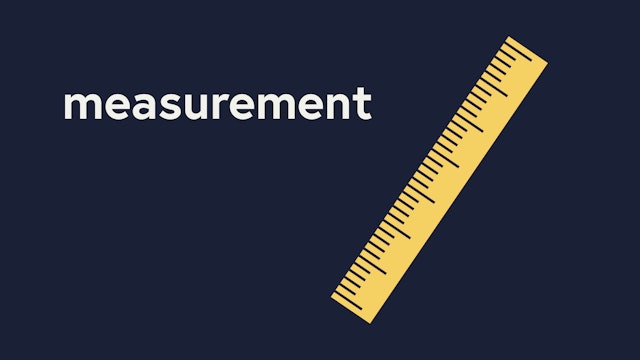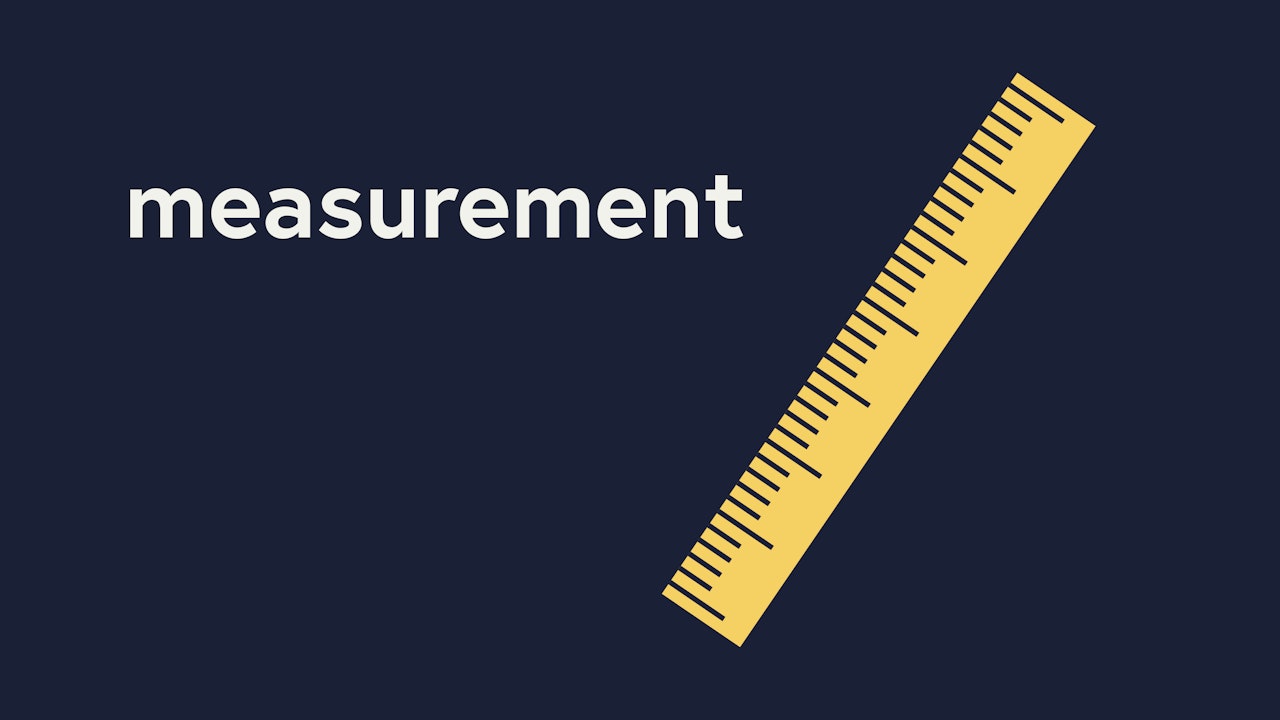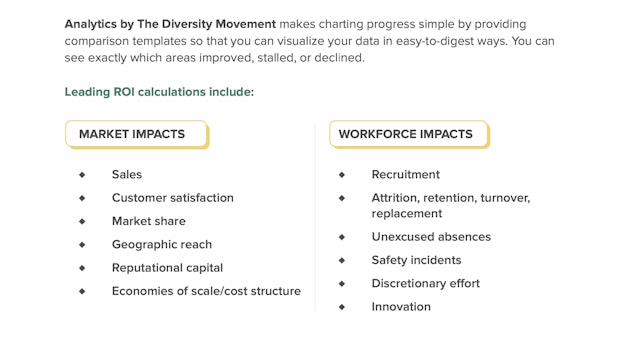-
How to Gather DEI Data
Discover why you should make data collection and analysis your first step in DEI strategy design. Follow this step-by-step approach to determine baselines at your company and benchmarks for comparison with others. Use metrics to define realistic DEI goals and the strategies to achieve them.
-
How Do You Measure ESG?
Measuring ESG is an important challenge that requires looking beyond data and metrics, examining underlying processes, assessing causality, and balancing between a big-picture, long-term perspective and a focus on details.
-
Tracking DEI Progress
Confirm the critical importance of tracking, measuring, and reporting the results of your DEI initiatives. Review a list of 10 recommended metrics you can use to set baselines, measure your progress, and pinpoint priorities for improvement.
-
The Power of Data: How to Measure the Effectiveness and Value of DEI
4.89 MB
-
Developing a DEI Scorecard for Progress
Learn the 10 key metrics to track to evaluate the progress of your DEI programming. Learn how these metrics allow you to better understand what is working within your strategy and what needs refinement.
-
Identifying ESG Metrics That Matter
With many different ways to measure environmental, social, and governance (ESG) criteria, how do you identify the metrics that matter the most? The answer depends on your values, but there are international standards that provide a guideline.
-
What’s the Difference Between ESG and CSR?
Corporate Social Responsibility (CSR) and Environmental, Social, and Governance (ESG) policies are related, but not the same. In this video, we will cover the difference between the two and how you can begin to implement both CSR and ESG practices into your business.
-
How Can You Know When DEI Initiatives are Successful?
Employee retention, employee engagement, and an increased bottom line are all indicators of a successful DEI program. Learn how and why in this video.
-
What Is ESG?
Environmental, social, and governance (ESG) factors are increasingly important to stakeholders. These non-financial criteria help measure a company’s ethical impact and sustainability, guiding investment and purchasing decisions.
-
How Can I Get Started with ESG Investing?
ESG investing refers to allocating your investment funds to companies that are setting and achieving goals for environmental sustainability, social responsibility, and governance. Studies indicate that 85% of investors consider ESG factors when investing. ESG investing totals more than $17 trilli...
-
Why DEI Should Be the Centerpiece of ESG
Environmental, social, and governance factors (ESG) are inextricably connected to diversity, equity, and inclusion (DEI) practices. DEI is attracting significant attention from investors who are now incorporating ESG criteria into their decision making.
-
How to Measure Success for Inclusive Leadership
Learn what data points to consider when measuring the success of inclusive leadership. For the full webinar, visit
https://www.gotostage.com/channel/22238eff15284e69847a9bb5243d7217/recording/746f6112c93746bc8631d2e83163526f/watch?source=CHANNEL














